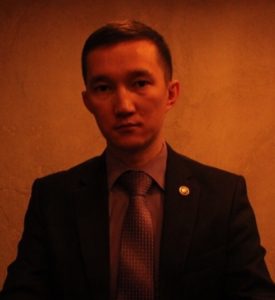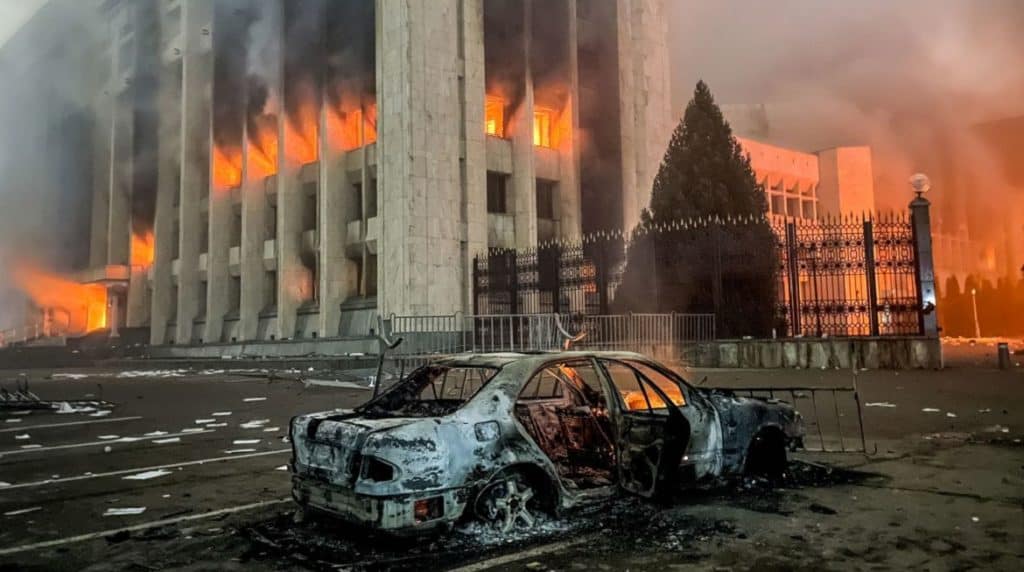By Marat Yessimseitov
The situation in Ukraine remains a key topic on the current international agenda. Daily reports of the death toll, military equipment destroyed on both sides, statements by senior state officials, and the impact of the war on global energy and food prices are factors that cannot be ignored by any country in the world.

Russia claims that it was forced to attack to defend itself against a potential NATO-led invasion by the Ukrainian army, and to protect the Russian-speaking population in Ukraine from increasing genocide by Kiev authorities. Ukraine denies these accusations and demands the return of occupied territories, including Crimea.
It is no secret that President Vladimir Putin of the Russian Federation has long dreamed of carrying out a large-scale military intervention in Ukraine, changing the legally elected government and appointing a puppet government there, completely controlled by the Kremlin. His repeated statements and articles about the absence of the Ukrainian nation as such are a vivid confirmation of this.
However, he did not dare to take this step for a long time, even though in 2014 Russia annexed Crimea and managed to carve out the Donbass as part of a larger plan to create a buffer zone of unrecognized quasi-states between Russia and west-oriented Ukraine. However, the plan was only partially realized and led to the largest military conflict in Europe in the 21st century, and Moscow’s fall into international isolation and significant loss of its influence.
So why only now, eight years after the annexation of Crimea and the separation of part of Ukraine, did Vladimir Putin decide to intervene militarily? After all, he could attack at any time during these eight years. The Russian military, according to the results of the most authoritative international rankings, has always been one of the three most powerful in the world. At the same time, the Ukrainian army, according to Business Insider, was ranked 21st in the world in 2014, behind many countries on the Old Continent, while in January 2022 it already occupied the sixth position in the ranking of military power among 35 states of Europe. Consequently, the attack was more logical before, before the qualitative modernization of the Ukrainian Armed Forces, than after so many years. What prompted Vladimir Putin to attack this very year?
In my opinion, the events of January 2022 in Kazakhstan, when a group of foreign terrorists, according to official statements of the Kazakh authorities, tried to seize supreme power in the Central Asian republic, contributed largely to it. Only the timely assistance of the peacekeeping contingent of the Collective Security Treaty Organization (hereafter CSTO), and primarily that of Russia, made it possible to normalize the situation and restore legal order on Kazakh territory.
First, it is worth noting that the CSTO peacekeeping contingent did not participate directly in the counterterrorism operation in Kazakhstan, but was engaged exclusively in the protection of strategic facilities, providing rear lines to Kazakh security forces. According to official data, the military from CSTO countries did not fire a shot, but their arrival had more of a psychological effect and allowed them to instill fear in terrorists.
Therefore, Putin must have thought that if 3,000 Russian soldiers were able to stop 20,000 terrorists attacking Kazakhstan without firing a shot, then the large Russian army, simply by its appearance on Ukrainian territory, would be able to morally break the spirit of the Ukrainian soldiers, whom Putin also considers terrorists, and Kyiv would be taken within a week at most.
The second reason Putin decided to attack Ukraine a month after the January events in Kazakhstan is that he likely believed that Kazakhstan owed him a debt of gratitude for the preservation of statehood. Therefore, during the war with Ukraine, the Kazakh army would be forced to take an active part on Russia’s side under the auspices of the CSTO. Despite the fact that Kazakhstan’s President Kassym-Jomart Tokayev has repeatedly stated publicly that Kazakhstan does not owe anything to either Russia or Putin personally. However, the President of the Russian Federation most likely thought otherwise. In this regard, it is important to note the political wisdom of Kassym-Zhomart Tokayev, who immediately showed the world that Kazakhstan is a peace-loving country that will not take part in the war alongside Russia.
Finally, the third factor for Putin was disappointment with the political transition in Kazakhstan. He saw with his own eyes that people were demolishing the monuments of former President Nursultan Nazarbayev, who is a close friend of Putin, and shouting, “Shal, ket!” (Old man, go away!).
Realizing that in Russia’s next presidential election in 2024, Putin will be more than 70 years old, he projected these slogans and rallies onto Russia, where, amid declining public confidence in politics, similar protests with the call, “Putin, go away!” are very likely to occur.
Putin has clearly seen from the example of Kazakhstan that no single political construct, no matter how reliable on paper, will allow him to protect himself and his loved ones from the wrath of the people. At the same time, he understood that the militant people of Russia would only idolize to the death a military leader who could expand Russian borders and strengthen the country’s influence on the world stage by challenging the progressive West. Therefore, Putin decided to perpetuate his name in the memory of the Russian people precisely as a military leader, Russian land collector and guardian of the Russian world, forever securing immunity from popular ire.
Thus, we see that the January events in Kazakhstan may have in many ways become a psychological trigger for Putin, prompting him to start a full-scale war with Ukraine. I wonder, if he had a chance to come back earlier this year, would he change his mind? Only he knows the answer to that question.
Author: Marat Yessimseitov – Independent political consultant in Kazakhstan. He has worked in various state structures, political parties, and structural divisions of the Presidential Administration. He was head of the analysis department of the Ministry of Information and Communications and press secretary of the Digitization Office of the Ministry of Health. He is the co-author of a popular monograph on China, author of numerous articles and publications in well-known Kazakh Republican media and international academic journals. He has received letters of appreciation personally from the First President of Kazakhstan Nursultan Nazarbayev and heads of state structures and political parties for his excellent work.
(The views expressed in this article belong only to the author and do not necessarily reflect the editorial policy or views of World Geostrategic Insights).







